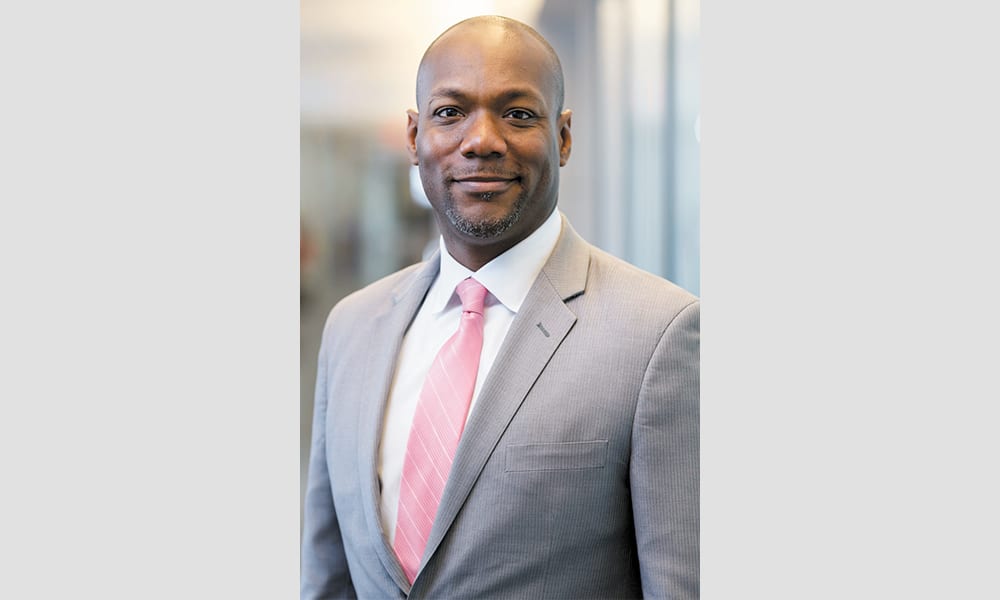Trauma.
If there is one word that can approximate what African Americans are experiencing — en masse — it is trauma. Trauma comes from a Greek word that means “wound.”
When people endure a large explosion, even if they’re only in the vicinity of the blast radius, the concussive force of the explosion literally rattles their brain (even if they’re wearing a helmet). There is no such thing as walking away injury-free after one comes into close contact with an exploding bomb. In the same way, the psycho-social force of racial trauma, even when African Americans experience it vicariously, affects us. Racial bombs are constantly being detonated and their aftermath is evident.
There are many potential responses to such trauma. One response is numbness. Another is avoidance. These responses are based on the universal human need for self-preservation. The mind — the psyche — can endure only so much before it has a psychotic break. Trauma.
When someone asks, “How are you?” there is a “correct” and expected answer. That answer is “I’m fine.” That response is so axiomatic that it’s invariably one of the first lessons that one learns when studying a language other than their native one. But that answer is often a lie. It’s a lie that is not meant to deceive so much as it’s meant to conceal. It’s also meant to protect — both the one who asks and the one who answers.
When we’re experiencing trauma, we understand that truthfully answering that question would impose on the one who asks a responsibility to do something about the condition of the one who honestly answered. So as not to burden the other person, most of us simply respond as expected: “I’m fine.” But, what if we’re not fine? What if we’re at our wits’ end? What if the compounding pain of merely living is causing us to literally lose our mind? Trauma.
For the record, acknowledging the trauma that African Americans face neither ignores nor negates the suffering of others. But I am not a member of those other groups and this is not about the “Oppression Olympics.” I am a Black man in America. My existence is centered in that reality. It is the only experience that I have. And the fact that I personally identify more closely as a Christian than as a Black man is irrelevant. Each of us has the free will to embrace whatever identity we choose, but that does not prevent others from deciding for themselves who — or what — we are.
Many of us try, in vain, to pretend that the identities that others assign to us don’t matter. That is a lie. If I am pulled over by a police officer, my religion doesn’t matter. If I attend service at a white church, my income is an afterthought. Imputed identity carries historical weight and contemporary pressure.
Speaking of being pulled over by the police, the criminal “justice” system is at the heart of much of our collective trauma. In 1972’s “No Name in the Street,” James Baldwin asked: “Does the law exist for the purpose of furthering the ambitions of those who have sworn to uphold the law, or is it seriously to be considered as a moral, unifying force, the health and strength of a nation?”
A few sentences later Baldwin exhorted: “If one really wishes to know how justice is administered in a country, one does not question the policemen, the lawyers, the judges, or the protected members of the middle class. One goes to the unprotected—those, precisely, who need the law’s protection most!—and listens to their testimony.”
For all my unprotected brothers and sisters, all is not lost. Those who post laughing emojis at our pain — or who even laugh in our faces — will not prevail. Sometimes we simply sit in silence. But, in the inimitable words of Amanda Gorman, we know that “quiet isn’t always peace.”
My prayer is that each of us who have the emotional and mental maturity to acknowledge our condition will gain access to trauma-informed care. In the meantime, let us love each other. Let us strengthen each other. Let us support each other. There will be glory after this.
Larry Smith is a community leader. Contact him at larry@leaf-llc.com.











